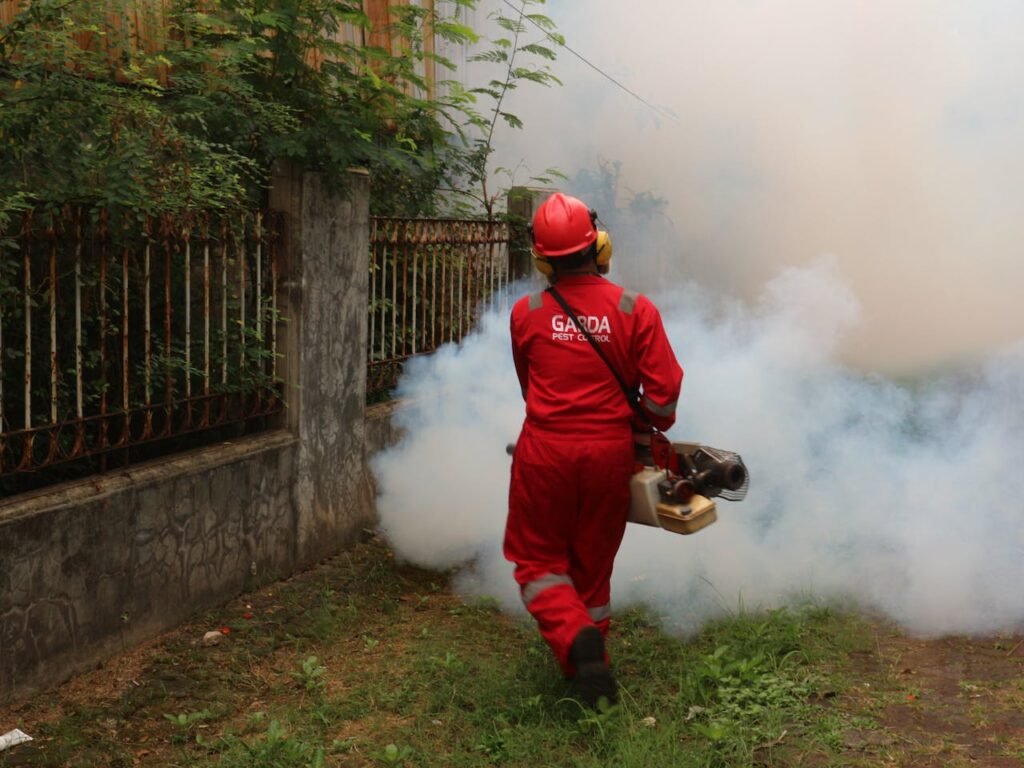Table of Contents
- Common Household Pests
- Impact of Pests on Health and Property
- Eco-Friendly Pest Control Solutions
- When to Call a Professional
- Preventative Tips for Homeowners
Key Takeaways
- Identify common household pests and their effects on health.
- Learn non-toxic and environmentally friendly pest control methods.
- Understand when to seek professional help for pest control issues.
Common Household Pests
Many homeowners often face the ongoing issue of household pests. Ants, cockroaches, mosquitoes, and rodents like mice and rats are typical pests. To effectively pest control in Lexington, the initial step is identifying which pests are most likely to infiltrate your home. Every kind of bug needs a unique method for managing and getting rid of them. Ants are commonly drawn to food and water, whereas rodents seek refuge in attics or basements. Identifying the pest type helps you customize your pest control techniques for better effectiveness. Ants, like many other social insects, reside in significant communities. There needs to be more than eliminating the visible ants to solve the more considerable issue hidden below the surface, making it difficult to eradicate these colonies. In the meantime, cockroaches tend to be active at night and can survive difficult conditions, frequently seeking refuge in dim and damp locations.
Impact of Pests on Health and Property
Pests can create various issues, ranging from health hazards to structural harm to your residence. For example, rodents can gnaw electrical wiring, creating a fire risk. Cockroaches may harbor harmful bacteria that can lead to illnesses such as food poisoning and diarrhea in humans.
Besides health dangers, pests can also weaken the structural stability of your house. For instance, termites are well-known for causing extensive harm to wooden buildings, resulting in expensive repairs. Bedbugs, though not causing direct harm, can lead to anemia from excessive blood loss in severe infestations. In addition, pests such as pigeons and squirrels have the potential to harm your roof and eaves, resulting in leaks and problems with insulation. The longer these pests are permitted to move around unrestricted in your house, the greater and costlier the required repairs will become.
Eco-Friendly Pest Control Solutions
There is a rising popularity of environmentally friendly pest control solutions. These efficient techniques do not harm the environment, pets, or humans. Here are some eco-friendly options:
- Biological Pest Control: Use natural predators, such as ladybugs and spiders, to control pest populations. These predators can naturally keep the pest population in check without toxic chemicals.
- Organic Pesticides: Utilize pesticides made from natural ingredients like neem oil and diatomaceous earth. These items typically pose lower risks to unintended species like people and animals.
- Integrated Pest Management (IPM): Combine multiple methods for a holistic approach to pest control. This can include physical barriers, biological controls, and the judicious use of pesticides when necessary.
These techniques shield your residence and preserve the natural surroundings by decreasing the number of toxic substances entering the ground and water. Environmentally friendly options can be advantageous for individuals mindful of their ecological footprint or for household members who are reactive to conventional pesticides. In addition, these techniques frequently offer permanent resolutions by tackling the underlying reasons for infestations rather than just dealing with the surface issues.
When to Call a Professional
Professional pest control services are sometimes necessary to manage and eliminate infestations effectively. Here are some signs that it might be time to call in the experts:
- Persistent Infestations: The problem persists despite using DIY methods. If you’ve tried natural repellents, traps, and other techniques, yet the pests keep returning, it may indicate a more significant issue requiring professional intervention.
- Extensive Damage: Significant damage to your property has occurred. If you notice structural damage, chewed wires, or contaminated food supplies, you must get professional help immediately.
- Health Risks: Pests pose health risks to your family. For example, if someone in your household has a severe allergy to insect bites or a weakened immune system, professional pest control services can provide peace of mind.
Professional pest control services have better access to more efficient treatments and can enforce lasting solutions to avoid future infestations. They know how to spot the pests and determine the root cause, which might soon be apparent to those needing more expertise.
Preventative Tips for Homeowners
Preventing pests is often more straightforward than dealing with an infestation. Here are some preventative measures you can take:
- Regular Inspections: Frequently inspect your residence for any cracks and openings that pests could exploit to gain entry. Close these openings using caulk or a suitable substance to prevent pests from entering.
- Yard Maintenance: Maintain a tidy backyard to minimize hiding spots for pests. Cut back bushes and trees close to your house to remove possible entryways for pests.
- Secure Garbage: Keep garbage tightly sealed to deter pests from scavenging. Use garbage cans with tight-fitting lids, and consider keeping cans in a shed or garage.
- Pest Inspections: Arrange routine pest inspections to detect problems at an early stage. A skilled individual can pinpoint possible trouble spots and suggest preventive actions before an infestation onset.
By adhering to these recommendations and utilizing a mix of do-it-yourself and professional techniques, you can protect your home from pests all year. Putting time and energy into preventative actions can help you avoid the hassle and cost of handling a severe infestation in the future.

